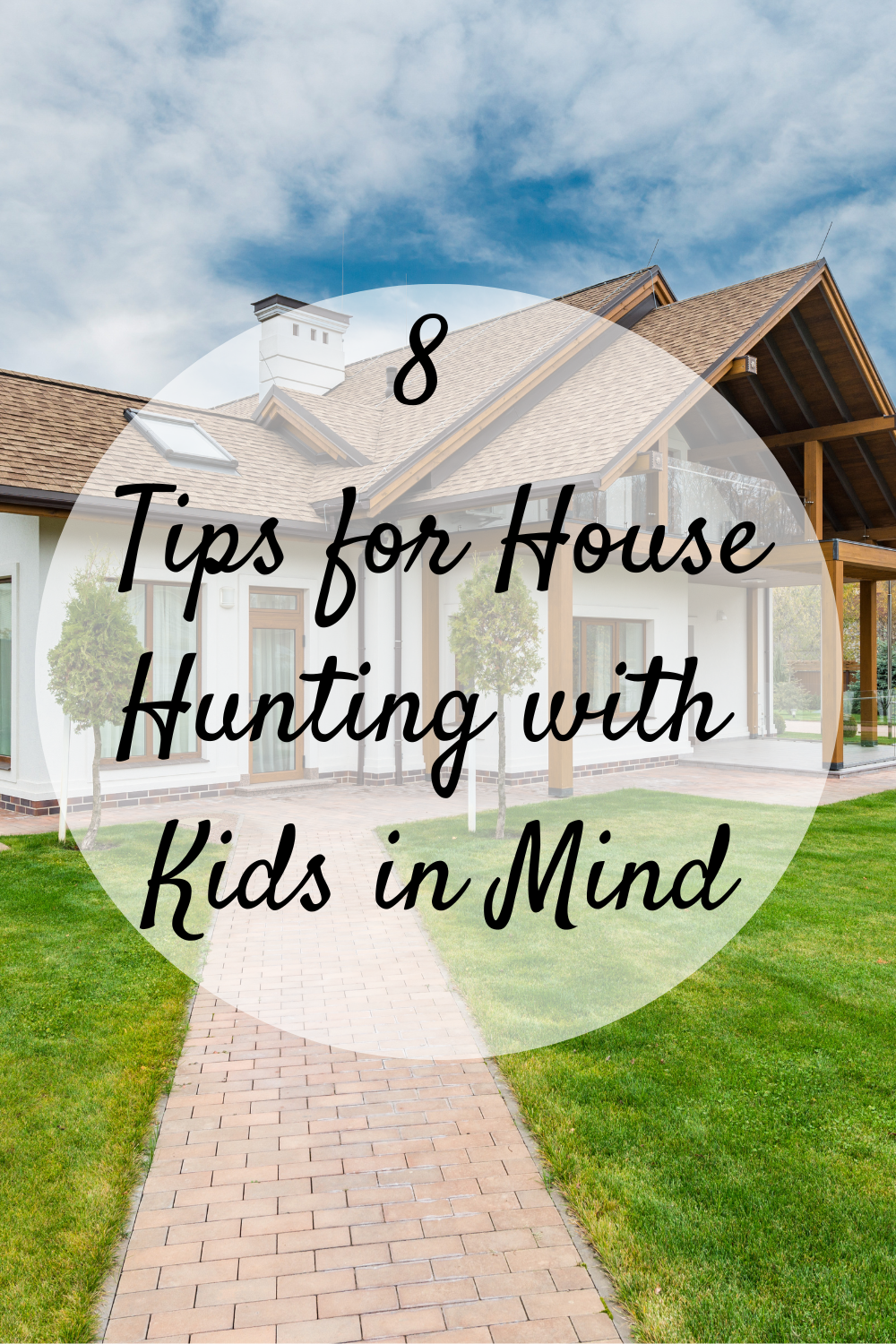
House hunting can be a daunting process, especially when you have children. Finding a home that meets the needs of every family member is crucial for creating a comfortable and harmonious living environment. Here are some practical tips to help you navigate the house-hunting process with kids in mind.
1. Prioritize Location and Safety
Choose a Family-Friendly Neighborhood
The location of your new home is perhaps the most critical factor when house hunting with kids. Look for neighborhoods that are known for being family-friendly. This includes areas with low crime rates, quiet streets, and a strong sense of community. Research local schools, parks, and community centers to ensure they meet your standards.
Evaluate Safety Features
When visiting potential homes, pay close attention to safety features. Check for secure windows and doors, childproof outlets, and the overall condition of the property. If the house has stairs, consider whether they are safe for young children and whether you can install baby gates if necessary.
2. Consider Proximity to Amenities
Schools and Daycare Centers
Proximity to good schools and daycare centers is essential. Research the local school district and visit the schools if possible. Look for high ratings and positive reviews from parents. Even if your kids are not school-aged yet, buying a home in a good school district can also be a good investment for the future.
Parks and Recreational Areas
Children need space to play and explore. Look for homes near parks, playgrounds, and recreational areas. These spaces provide opportunities for outdoor activities and socialization with other children in the neighborhood.
Healthcare Facilities
Proximity to healthcare facilities is also crucial. Check the distance to the nearest hospital, pediatrician, and emergency care services. This can provide peace of mind in case of any health emergencies.
3. Think About Space and Layout
Bedroom Arrangements
Consider the number of bedrooms and their arrangement. Think about whether your children will need separate rooms or if they can share. Ensure there is enough space for each child to have a comfortable and personal area.
Play Areas
Look for homes with designated play areas or spaces that can be converted into playrooms. Having a dedicated play area helps keep toys and activities contained, which can make the rest of the house feel more organized and spacious.
Outdoor Space
A backyard or outdoor space is a valuable asset for families with children. It provides a safe area for kids to play, explore, and enjoy fresh air. Check if the yard is fenced and whether it’s safe for children to run around without constant supervision.
4. Plan for Future Needs
Growth and Changes
Think about your family’s future needs. Are you planning to have more children? Will your current children need more space as they grow older? Choose a home that can accommodate these changes. Look for flexible spaces that can evolve with your family’s needs.
Storage Solutions
Kids come with a lot of stuff. From toys and books to clothes and sports equipment, ample storage is a must. Look for homes with built-in storage solutions like closets, cabinets, and shelves. A home with a basement or attic can also provide additional storage space.
5. Involve Your Kids in the Process
Consider Their Preferences
Involving your children in the house-hunting process can make the transition easier for them. Ask for their input and consider their preferences when choosing a home. This can include selecting their bedroom or finding a house with a yard big enough for their favorite activities.
Visits and Tours
Take your children with you on house tours. This can help them feel included in the decision-making process and give them a sense of what their new home might be like. Observe their reactions and listen to their feedback.
6. Budget Wisely
Plan for Extra Expenses
When budgeting for your new home, consider the additional expenses that come with having children. This includes costs for childproofing, potential renovations, and extra furniture. Ensure that your budget allows for these expenses without causing financial strain.
Resale Value
While it’s important to find a home that suits your family’s current needs, also think about the future resale value. A home in a good school district, with ample space and family-friendly features, is likely to be a good investment.
7. Utilize Technology
Online Research
Use online resources to research neighborhoods, schools, and potential homes. Websites like Zillow, Realtor.com, and GreatSchools can provide valuable information and help you narrow down your choices before visiting in person.
Virtual Tours
Take advantage of virtual tours and online walkthroughs. This can save time and allow you to get a feel for the property before scheduling an in-person visit. Virtual tours can also help keep your children engaged in the process by allowing them to explore homes digitally.
8. Seek Professional Help
Real Estate Agents
Working with a real estate agent as well as a real estate attorney, like the ones at Baker Law Group, who specializes in family homes can be incredibly beneficial. They can provide insights into family-friendly neighborhoods, help you find homes that meet your criteria, and negotiate on your behalf.
Home Inspectors
Hire a reputable home inspector to ensure the property is safe and in good condition. An inspector can identify potential issues that might not be immediately apparent, such as structural problems or outdated electrical systems.
House hunting with kids in mind requires careful consideration and planning. By prioritizing location and safety, considering proximity to amenities, thinking about space and layout, planning for future needs, involving your kids in the process, budgeting wisely, utilizing technology, and seeking professional help, you can find a home that meets the needs of your entire family. Happy house hunting!





